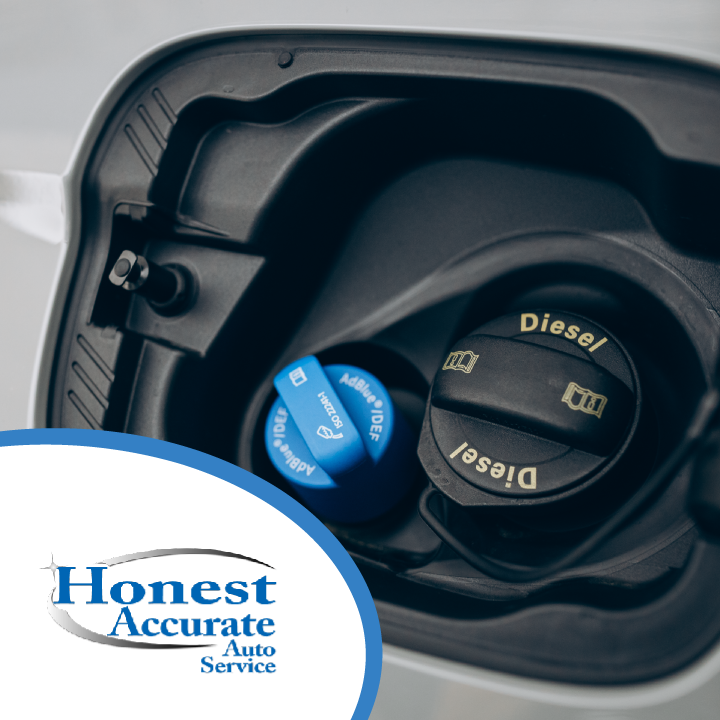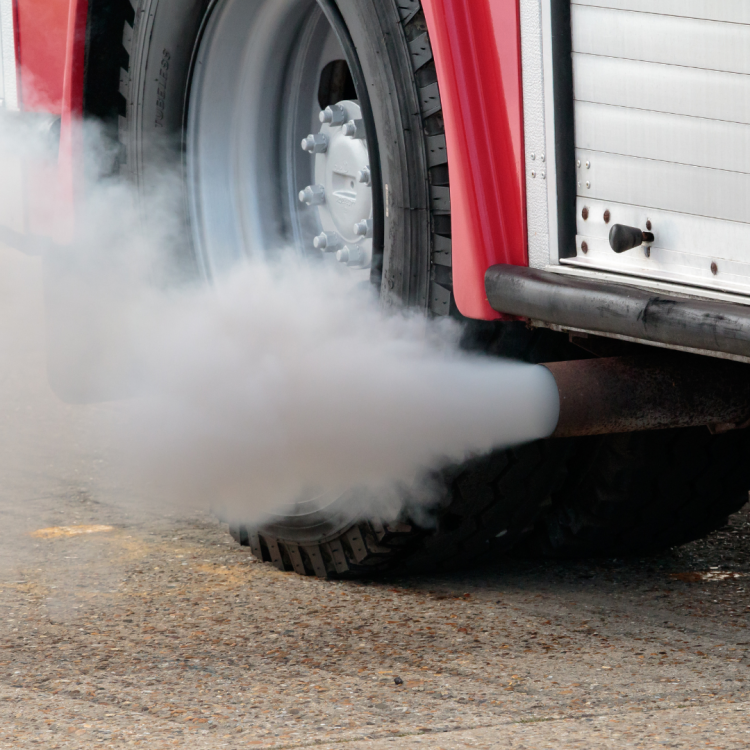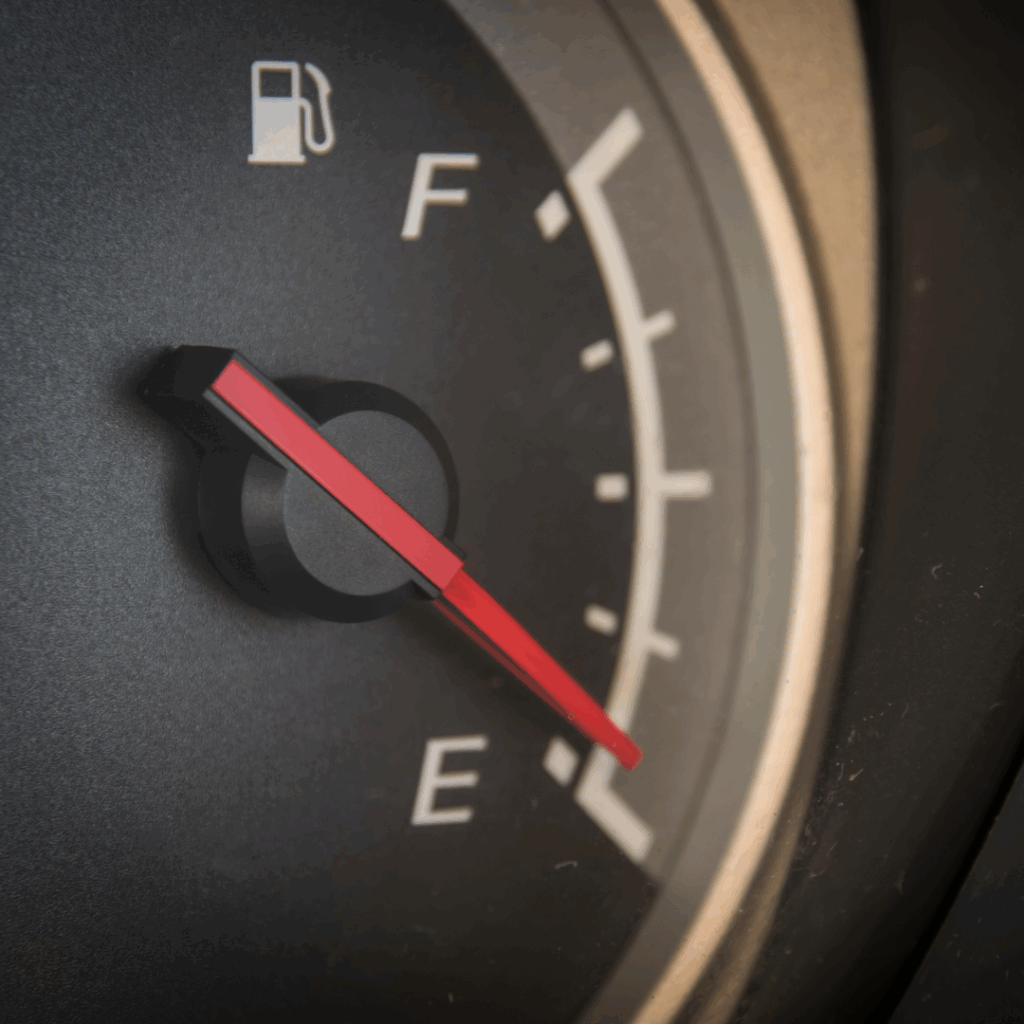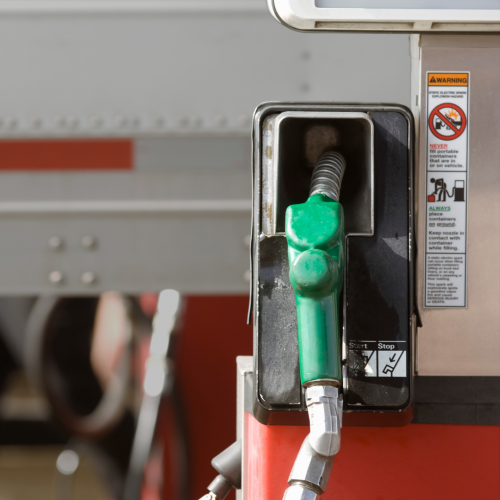Is It Time for Diesel Maintenance?
How do you know when it’s time for diesel maintenance on your vehicle? With the growing number of diesel trucks — and cars — hitting the road these days, more customers are asking questions about the general care and upkeep of a diesel vehicle. We’ve certainly noticed the uptick in diesel customers — we’ve increased technician training and updated our equipment to meet the growing demand for diesel services. And, as mechanics, we understand the hype.
Diesels have long been the reliable transporter of goods across the United States, as well as the power behind buses, construction equipment, farm machinery and so much more. For the average driver, however, owning a diesel vehicle comes down to a few key benefits:
- Fuel Efficiency
Colorado drivers know one thing for certain: Everywhere you want to go is far! Some drivers have made the switch to diesel because diesel provides drivers with better performance when it comes to towing. That means if you spend every weekend hauling toys up the mountain or pulling a camper across the country, diesel is a great option.
- Durability
Diesel vehicles like to keep on trucking long after you think they should want to retire. These vehicles are durable, with more manageable maintenance and parts that go the distance.
- Towing Capacity and Torque
We know that diesel is tops for folks looking to invest in a toy hauler for their boats, campers and OHV trailers. Especially if you’re hauling up in the Rockies on all those hairpin turns and guardrail-free roads. Diesel has the torque to make sure you can take those toys safely without taxing your engine.

Even with all of these positives, diesel vehicles are not indestructible. Like any other vehicle, they perform at their peak with routine maintenance and proactive repairs when something goes wrong. Here are a few signs that it’s time to perform some much-needed diesel maintenance.
Signs You Need Diesel Maintenance
1. Check Engine Light Is On
This is the most obvious sign that something is wrong. In fact, it is a literal message from your vehicle to you that your diesel needs maintenance. If the dreaded light is on, bring your vehicle in for an inspection. Sometimes, it’s a simple fix. It’s always nice to be able to report to customers that their problem was a loose gas cap. Other times, the light is an alert that a more serious problem might be on the horizon. The same goes for any dashboard lights, including temperature, oil or any other alert.
The important takeaway is not to ignore the light just because the truck is operating normally. You could be doing internal damage to the vehicle that’s entirely preventable. When in doubt, trust a professional to help you find a solution that extends the life of your vehicle. You want it to live up to its full diesel potential!
With the most obvious sign out of the way, let’s dive into some of the more confusing signs your truck needs diesel maintenance.
2. Diesel Engine Is Making Weird Noises
We know that one of the signatures of a diesel engine is that powerful start-up and loud acceleration. It takes more compression to power a diesel vehicle and the resulting temperature and combustion can sound far different than the average car powered by unleaded gasoline. Modern diesel engines are designed to perform more quietly than their predecessors, but they still have a distinct sound that lets you know it’s not powered by a regular engine.
Drivers that are newer to diesel ownership may not be as familiar with the way their truck should sound. Here are a few engine noises that should definitely inspire a call to bring your vehicle in for a diesel inspection:
- Diesel knock: A loud, rattling knock that is decidedly not normal for your engine. Diesel knock is usually a sign that your truck is having issues with injection, pressure, engine load or even fuel quality. Ignoring engine knocking can lead to permanent damage of the internal components. Do not let it go without an inspection.
- Squealing: You’ve definitely heard a vehicle with a distinct squealing sound during start-up or while driving. It’s typically a sign that your belts and pulleys need some extra attention.
- Grinding: If it sounds like components are rubbing together under the hood, you definitely need to get it inspected. Grinding could be a sign that your flywheel or torque converter are damaged. Grinding can also be caused by exhaust and fuel issues.
- Sizzling: Are you cooking bacon under the hood? No? Then that sizzling is a potential problem. It may be a sign that your truck is leaking fluid onto the hot engine and creating the sizzle you definitely prefer to keep in the kitchen.
- Popping: If your diesel is making noise that sounds like popping or backfiring when idling or accelerating, you may have valve issues or a problem with the exhaust or even the push rod. The area the sound is coming from will help you narrow it down, but a professional inspection can usually target the source more effectively.
3. Excessive Exhaust/Smoke
While people do tend to associate diesel trucks with clouds of exhaust, the reality is that you shouldn’t have excessive clouds of anything coming from your vehicle. The trucks you see “rolling coal” and dumping black clouds of exhaust into traffic have often been modified, usually illegally, to create the effect and it’s not really great for the engine over time. If it has not been modified, black smoke — and other types of smoke, are a sign your diesel needs maintenance.

Black Smoke:
Black smoke is typically a sign that your vehicle is having fuel issues. In fact, one of the ways a diesel engine can be modified to dump black smoke is by tampering with the fuel injection without adjusting the air intake. Other causes include air filter issues or EGR problems.
White Smoke:
While you may notice some white clouds coming from the exhaust when you start your vehicle on a cold morning, your truck should not emit white smoke during regular operation. White smoke can be a serious indicator that something is wrong with your engine, like a cracked head gasket. You may have coolant entering the combustion chamber, or, in the case of bad fuel injectors, unburnt fuel. Get your truck in right away if you notice white exhaust.
Gray/Blue Smoke:
Gray or blue smoke is usually a sign that you’re having issues with burning oil. This can be caused by a variety of issues, like worn rings and faulty seals. Like white smoke, you may have a little bit of gray exhaust on a cold day, but if the exhaust is occurring during acceleration and it also includes a burning smell, it’s time for some maintenance.
Smoke, noise and dash lights are a visible indicator that something is wrong. But what about a more subtle indicator? Let’s look at a sign that isn’t so obvious.
4. Difficulty Starting
If your diesel truck is having a hard time getting started, it could be more than an inconvenience or a late start at work. Cold weather is the most common reason a diesel truck might have trouble starting. If your turnover woes are mostly limited to cold mornings, you’re probably having issues with fuel gelling. The battery can also be a problem, especially if yours is not designed to withstand cold Colorado mornings.
Other more serious problems can cause difficulty starting a diesel truck or car. Faulty glow plugs and issues with the fuel system are common factors in poor or failed starts. Your starter motor can malfunction and fail to turn the engine. You could even have electrical issues interfering with normal operation.
If you have trouble starting your diesel or keeping it running once it’s turned over, have it looked over by a professional. They can start with easy troubleshooting to make sure it’s not the battery or the weather and then take a deeper look to detect more pressing causes.
5. Decreased Fuel Efficiency
Do you feel like you’re making more frequent trips to the gas pump than you have in the past? Tracking your miles per gallon is an excellent way to monitor your vehicle’s performance over time. One of the top reasons for purchasing a diesel truck or car is for the improved fuel efficiency, so if you notice a decline in overall use, then it may be a sign your engine needs a little help.
The most common factor in decreased fuel efficiency is dirt, grime and clogs. Sometimes it really can be as simple as changing out a clogged air filter.

Other potential factors include dirty fuel filters or clogged fuel injectors. Bad fuel, deposit build-up in the engine and other challenges can also lead to decreased fuel efficiency.
Monitoring your fuel efficiency is as easy as tracking your mileage against your gas receipts to average out the total miles per gallon. Newer vehicles can even track the information for you using trip computers that constantly report your MPG as you drive. Phone apps can also help!
Don’t Neglect Your Diesel Maintenance
If you notice a problem with your diesel truck or car, don’t put off bringing it into the shop for an inspection. These vehicles are designed for durability — but only with your help. If you notice knocking, squealing, smoking, diminished performance or that pesky “Check Engine” light, come into Honest Accurate Auto Service. We’ll help you troubleshoot, diagnose and repair your toughest diesel issues!



